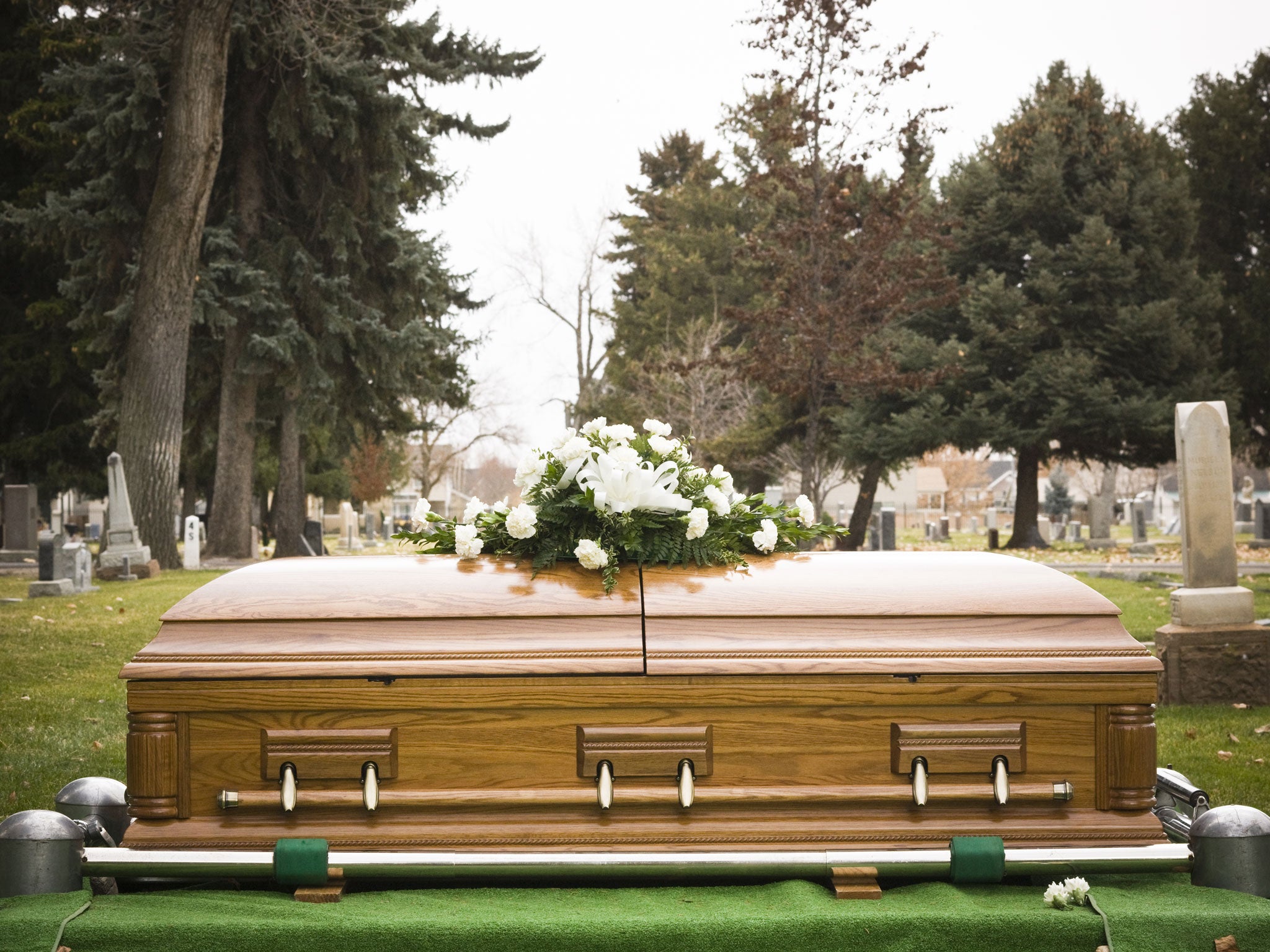Rise in ‘funeral poverty’ means more than 100,000 in UK cannot afford to die
Damning study says there is a lack of support to help Britain’s poorest pay for funerals

Never mind the cost of living crisis – the rise of “funeral poverty” in Britain means more than 100,000 people will be unable to afford the cost of dying this year, researchers have said.
The average price of arranging a funeral, burial or cremation service with state administration now stands at £7,622, and has risen by 7.1 per cent in the past year alone.
Combined with the financial challenges faced by the poorest people in recession-hit Britain, it means the level of “funeral poverty” is up 50 per cent from three years ago.
According to a study from the University of Bath’s Institute for Policy Research (IPR), the hundreds of thousands of people who will struggle to afford to die in 2014 will also leave their families with an unnecessarily difficult challenge to apply for state support.
For families on low incomes, the Social Fund Funeral Payment, first introduced in 1988, is intended to take the financial pressure away from giving their loved-one a proper funeral.
But the IPR report called for a review of the Department for Work and Pensions-administered payment, describing it as “outdated”, “overly complex” and “insufficient” to meet the needs of the poorest in society.
In spite of the lowest-ever recorded mortality rates for England and Wales, the cost of dying has steadily increased over recent years.
The average cost of a funeral actually rose by 80 per cent between 2004 and 2013 and the costs of dying are expected to continue to increase over the next five years.
On average, the price of a typical funeral, including non-discretionary fees and a burial or cremation, is £3,456.
The average amount spent on extras such as a memorial, flowers and catering is £2,006 and discretionary estate administration costs have increased significantly to £2,160.
The study, which was funded by the insurer Sunlife Direct, also found that local authorities have experienced a small but notable increase in demand for public health funerals, on the grounds that individuals are not prepared to organise or pay for the funeral of a family member.
Dr Kate Woodthorpe, from the university's Centre for Death and Society, said: “Medical advancement has made significant improvements to death rates.
“As a result people are living longer, which requires larger incomes and pension pots to ensure these extra years can be afforded. Whether or not these will stretch to cover funeral costs is unclear.
“At the same time, the younger generations have less ready cash to call on, so they cannot necessarily be relied on to pick up the bill either.”
Baroness Sally Greengross, chief executive of the International Longevity Centre - UK, said: “The pattern of falling death numbers is about to turn around and start to increase.
“With growing funeral costs, quite simply, growing numbers of people might find they can't afford to die.
“The Government must act now before the current issue of funeral poverty becomes an even more significant future crisis.
A spokesperson for the Department for Work and Pensions told the Guardian: “The funeral payment scheme continues to cover the necessary costs of burial or cremation in full, because we know that these costs may vary widely across the country.
“A significant contribution is also made towards the fee levied by funeral directors which is currently set at £700. Other costs are also met in full, for example the cost of any doctors' certificates and certain travel expenses. To put this into context, the average social fund funeral payment last year was £1,225.”
Join our commenting forum
Join thought-provoking conversations, follow other Independent readers and see their replies
Comments
Bookmark popover
Removed from bookmarks